Introduction
The Russian National University of Economics, also known as the National Research University Higher School of Economics, or HSE University for short, is Russia's top public comprehensive university and is known as the "Think Tank of Eastern Europe".
Overview
Student size: As of 2020, it has 44,100 students from more than 90 countries.
Faculty: There are more than 7,000 lecturers and researchers, and the faculty comes from all over the world, including Nobel Prize winner Eric Maskin and Fields Medal winner Andrei Okunkov.
History
Founded on November 27, 1992, the idea of its creation originated in the early 1990s after the disintegration of the Soviet Union. At that time, Russian people of insight realized that the old economic education system could no longer meet the new political and economic status quo, so a team of lecturers including Evgeny Yasin and Yaroslav Kuzminov from Moscow State University tried to introduce modern economics into university courses, which eventually led to the establishment of the school.
1993 In 1990, the first bachelor's and master's degree courses were opened, and the doctoral degree course was opened in 1994. In 1995, it was granted university status. Since then, it has continued to grow and develop, and has established multiple campuses, colleges and research institutions.
School Strength
Teaching Quality: As one of the universities with the highest international reputation in the Russian higher education system, the school provides excellent educational programs from secondary school to doctoral level. Its courses are extensive and keep up with the needs of the times. It focuses on cultivating students' practical ability and innovative thinking. Graduates are highly regarded by European and global employers.
Scientific Research Level: It has achieved important results in research in economics, social sciences and other fields. It is the main expert analysis center of the Russian government and the president. It has drafted many important legislations, government plans and policies for the federation and regions, and participated in many international scientific and technological cooperation projects, and cooperated with organizations such as the OECD, the G20, the BRICS, and UNESCO.
International Exchange :The school actively carries out international cooperation and maintains close ties with major universities around the world. For example, it has dual degree program cooperation with top European universities such as the London School of Economics and Political Science, University College London, and Humboldt University of Berlin in Germany. It has also carried out various forms of cooperation projects with many universities in China, such as the University of Hong Kong, Tsinghua University, and Fudan University.
Nature of the school
Public research university.
Educational philosophy
Focus on cultivating students' innovative and practical abilities, combining theoretical knowledge with practical application, and is committed to providing students with an international educational environment and a diversified academic atmosphere, so that students can be competitive in the context of globalization. At the same time, it encourages students to actively participate in scientific research activities and social practice to improve students' comprehensive quality and ability to solve practical problems.
Key laboratories and disciplines
Key laboratories: 2010 In 2014, the first batch of international laboratories were established, such as some laboratories in the fields of economics and social sciences in cooperation with international partners.
Key disciplines: The disciplines are mainly economic management, mathematics, computer science and social sciences. In the QS World University Subject Rankings, disciplines such as political science and international relations, sociology, economics and econometrics perform well, and its economics major has an important influence in Eastern Europe.
Faculties
After the structural reform in 2014, the following "big" faculties were created:
Faculty of Computer Science
Faculty of Economic Sciences
Faculty of Business and Management
Faculty of Communications, Media and Design
Faculty of World Economy and International Affairs
Faculty of Humanities
Faculty of Social Sciences
Faculty of Mathematics
Faculty of Law
School of International Economics and Finance
Moscow Institute of Electronics and Mathematics
Faculty of Physics
Faculty of Chemistry
Faculty of Urban and Regional Development
Faculty of Biology and Biotechnology
Rankings
2022-2023 US News Ranking: 561st in the world's best universities, 234th in Europe's best universities, and 4th in Russia's best universities.
2021 THE Times Higher Education Ranking: World University Reputation Ranking 151-175, 41st in the world's young universities with less than 50 years of age.
2021 QS ranking: 298th in the world university rankings, 48th in political science and international relations, 51-100th in sociology, 51-100th in economics and econometrics, etc.
Expenses
Tuition fees vary depending on the major and degree level. Generally, the annual tuition fee for undergraduate majors is about US$3,000-5,000, the annual tuition fee for master's majors is about US$4,000-6,000, and the tuition fee for doctoral majors is about US$5,000-7,000. In addition, the school also provides preferential policies such as scholarships and grants for outstanding students.
Campus
The school has a Moscow campus and three branch campuses in St. Petersburg, Nizhny Novgorod and Perm. It has 12 libraries and 20 dormitories. Most of the campuses are located in the city center with convenient transportation. The campus facilities are complete, including open-air squares, gyms, classrooms and libraries, etc. The cultural life is rich. The school also regularly holds various lectures, seminars and exhibitions.
-

Peter the Great St.Petersburg Polytechnic University
-
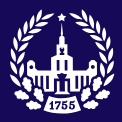
Moscow State University M. V. Lomonosov
-
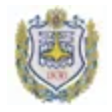
Bauman Moscow State Technical University
-
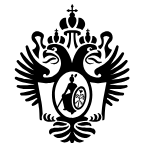
St. Petersburg State University
-
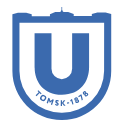
Tomsk State University
-
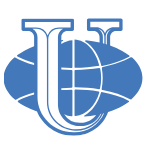
Peoples' Friendship University of Russia
-
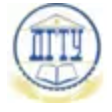
Don State Technical University
-
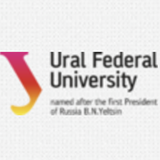
Ural Federal University
-

Moscow Institute of Physics and Technology
-
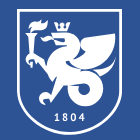
Kazan Federal University
-

Mesoamerican University
-

Istmo University
-

Mariano Galvez University of Guatemala
-

Regional University of Guatemala
-

Galileo University
-

Francisco Marroquín University
-

Rafael Landívar University
-

University of the Valley of Guatemala
-

University of San Carlos of Guatemala
-

Technological Institute of Tlaxcala Plateau
-

Golfo University
-

Technological University of South Sonora
-

Technological University of Huejotzingo
-

Tizimín Institute of Technology
-

Chilpancingo Institute of Technology

